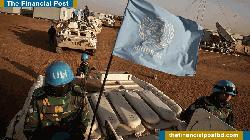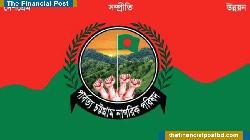Mary E. Brunkow and Fred Ramsdell of the United States and Japan's Shimon Sakaguchi won the Nobel Prize in Medicine on Monday for research into how the immune system is kept in check, the Nobel jury said.
Their discoveries have been decisive for understanding how the immune system functions and why we do not all develop serious autoimmune diseases.
The three were honoured "for their discoveries concerning peripheral immune tolerance", the jury said.
"Their discoveries have laid the foundation for a new field of research and spurred the development of new treatments, for example for cancer and autoimmune diseases," it added.
Their findings may also lead to more successful transplantations.
Sakaguchi, 74, made the first key discovery in 1995.
At the time, many researchers were convinced that immune tolerance only developed due to potentially harmful immune cells being eliminated in the thymus, through a process called "central tolerance".
Sakaguchi showed that the immune system is more complex and discovered a previously unknown class of immune cells, which protect the body from autoimmune diseases.
Brunkow, born in 1961, and Ramsdell, 64, made the other key discovery in 2001, when they were able to explain why certain mice were particularly vulnerable to autoimmune diseases.
"They had discovered that mice have a mutation in a gene that they named Foxp3," the jury said.
"They also showed that mutations in the human equivalent of this gene cause a serious autoimmune disease, IPEX."
Two years later, Sakaguchi was able to link these discoveries.
The trio will receive their prize -- a diploma, a gold medal and a $1.2-million cheque -- from King Carl XVI Gustaf at a formal ceremony in Stockholm on December 10, the anniversary of the death in 1896 of scientist Alfred Nobel.
Nobel created the prizes in his last will and testament.
- Trump jeopardising US leading role -
Researchers from major US institutions typically dominate the Nobel science prizes, due largely to the US' longstanding investment in basic science and academic freedoms.
But that could change down the line following massive US budget cuts to science programmes announced by President Donald Trump.
Since January, the US National Institutes of Health (NIH) has terminated 2,100 research grants totalling around $9.5 billion and $2.6 billion in contracts, according to an independent database called Grant Watch.
Thomas Perlmann, secretary general of the committee that awards the Nobel Prize for Medicine, told AFP it was "no coincidence that the US has by far the most Nobel laureates".
"But there is now a creeping sense of uncertainty about the US' willingness to maintain their leading position in research," he said.
Perlmann called the United States "the very engine" of scientific research worldwide.
"There would be very serious consequences for research globally if it starts to falter," he added.
"It doesn't take very many years of large cutbacks to cause irreversible harm."
Trump has meanwhile made no secret of the fact that he wants to win a Nobel himself -- the Peace Prize.
Nobel experts have however said his "America First" policies and divisive style give him little chance against those toiling on forgotten causes outside the limelight.
"It's completely unthinkable," Oeivind Stenersen, a historian who has conducted research and co-written a book on the prize, told AFP.
"(Trump) is in many ways the opposite of the ideals that the Nobel Prize represents," he said.
"The Nobel Peace Prize is about defending multilateral cooperation, for example in the UN... and Trump breaks with that principle. He follows his own path, unilaterally," Stenersen added.
Sudan's Emergency Response Rooms (ERR) -- networks of volunteers feeding and helping people endure war and famine -- are seen as a possible winner this year, as are media watchdogs the Committee to Protect Journalists and Reporters Without Borders.
Yulia Navalnaya, the widow of Kremlin critic Alexei Navalny, is among bookies' favourites.
The Nobel season continues this week with the announcement of the winners of the physics prize on Tuesday, chemistry on Wednesday, literature on Thursday, peace on Friday and economics on Monday, October 13.
Recent winners of the Nobel medicine prize
Here is a list of the winners of the Nobel Prize in Medicine in the past 10 years-
2025: Americans Mary E. Brunkow and Fred Ramsdell and Japan's Shimon Sakaguchi for research into how the immune system is regulated and kept in check.
2024: US scientists Victor Ambros and Gary Ruvkun, for their discovery of microRNA and its role in how genes are regulated.
2023: Hungarian Katalin Kariko and Drew Weissman of the United States, for their work on messenger RNA (mRNA) technology, which paved the way for groundbreaking Covid-19 vaccines.
2022: Swedish paleogeneticist Svante Paabo, for his discoveries on the genomes of extinct hominins and human evolution.
2021: US duo David Julius and Ardem Patapoutian, for discoveries on human receptors responsible for our ability to sense temperature and touch.
2020: Americans Harvey Alter and Charles Rice, and Briton Michael Houghton, for the discovery of the Hepatitis C virus, leading to the development of sensitive blood tests and antiviral drugs.
2019: William Kaelin and Gregg Semenza of the US and Britain's Peter Ratcliffe, for establishing the basis of our understanding of how cells react and adapt to different oxygen levels.
2018: Immunologists James Allison of the US and Tasuku Honjo of Japan, for figuring out how to release the immune system's brakes to allow it to attack cancer cells more efficiently.
2017: US geneticists Jeffrey Hall, Michael Rosbash and Michael Young, for their discoveries on the internal biological clock that governs the wake-sleep cycles of most living things.
2016: Yoshinori Ohsumi of Japan, for his work on autophagy -- a process whereby cells "eat themselves" -- which when disrupted can cause Parkinson's and diabetes.
FP/MI


 Human Chain in Satkhira Demands Justice for Journalist Hayat’s Murder
Human Chain in Satkhira Demands Justice for Journalist Hayat’s Murder
 BSF hands over 16 Bangladeshis to BGB at Satkhira border
BSF hands over 16 Bangladeshis to BGB at Satkhira border
 UN to cut 25% of peacekeepers worldwide; Bangladesh faces possible impact
UN to cut 25% of peacekeepers worldwide; Bangladesh faces possible impact
 Bangalee group calls hartal in Bandarban on 13 Oct
Bangalee group calls hartal in Bandarban on 13 Oct
 Syndicate accused of embezzling state funds under ACC scrutiny
Syndicate accused of embezzling state funds under ACC scrutiny